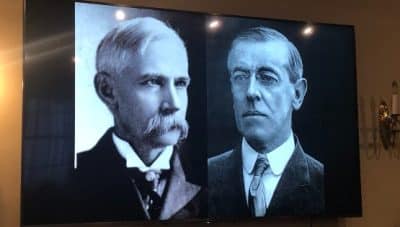
The IWF’s Director of Health Policy, Hadley Heath Manning, stated:
“This ruling is a victory for anyone who believes in limited government and freedom of conscience rights or religious liberty. This lawsuit has wrongfully been depicted as a conflict between religious employers and women, but the real question before the Court was whether there are limits to what government can compel from its citizens and if we are still a country that believes in freedom of conscience.
“This case was about much more than contraception. It was about the principles of liberty that animate our Constitution. It was about empowering women to choose the healthcare and salary options that best fit their needs. And it was about employers, many of them women, being able to follow their deeply held religious beliefs.
“The HHS mandate is bad policy. It comes with unintended consequences for women and for public health. By removing price competition from birth control markets, the mandate would have driven up the cost of drugs for women who remain uninsured, and may have discouraged condom use among those who are insured. We are thankful that the Court ruled today that closely-held corporations will not be required to follow this misguided policy.
“American women already had plentiful access to contraception before HHS created this burdensome employer mandate through ObamaCare. Indeed, Hobby Lobby currently provides its employees 16 of the 20 FDA-approved contraceptives. If the government wants to make birth control even more accessible, there are many other ways that it can do so without forcing employers with religious convictions to pay for abortifacients violate their beliefs.”
The Independent Women’s Forum (IWF) filed an Amicus Curiae brief in support of Hobby Lobby, Inc., and Conestoga Wood Specialties Corp., emphasizing the mandate’s negative potential consequences for women’s health and employment freedom. The main focus of the IWF’s brief, written by University of Missouri law professor (and former clerk for Chief Justice John Roberts) Erin M. Hawley, was a technical legal issue: the Anti-Injunction Act. The Anti-Injunction Act was enacted in 1867 to ensure the prompt collection of taxes and to protect the public treasury. The IWF argued that the Anti-Injunction Act was not jurisdictional and posed no bar to resolution of the critical constitutional questions at issue in the cases.
The IWF supports limited government, free-markets, and individual responsibility, and opposes ObamaCare coverage mandates, both for individuals and for employer-sponsored plans. The IWF’s statement of interest argued that the HHS mandate works contrary to women’s interests and will restrict women’s flexibility to customize their compensation and benefits.
The IWF has been monitoring and keeping the public informed about constitutional challenges to ObamaCare since the law’s passage, and in October 2010 launched a Web site to track the more than 100 cases filed against various aspects of ObamaCare. This project can be found online at HealthCareLawsuits.org.










